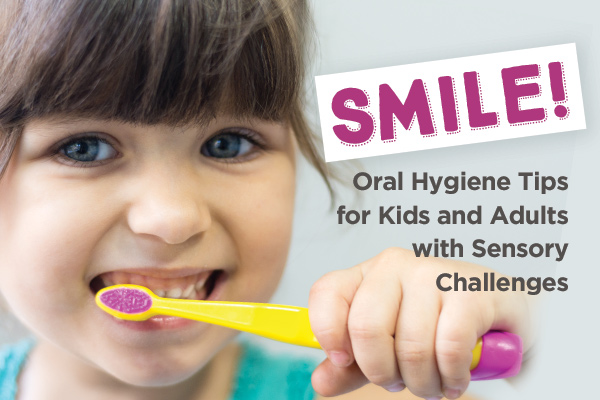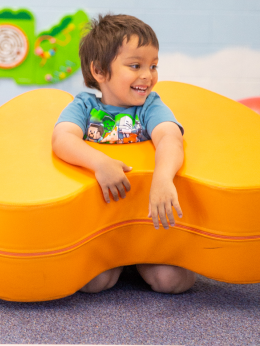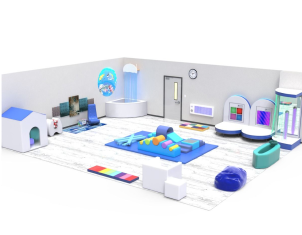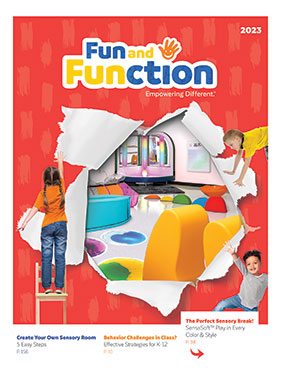
Oral Hygiene is not just about the mouth!
Oral Hygiene is Crucial for Health. First, let's just agree that regular checkups and good oral hygiene are crucial. Heart disease and other ailments can be directly related to the condition of one's mouth. Therefore regular brushing, flossing, rinsing, checkups and a healthy lifestyle are vital. Many dentists today are capable of handling patients with high sensitivities, fears and sensory challenges including autism, ADHD and Asperger's Syndrome as well as other special needs. Ask your friends and get recommendations to find the one that works best for you. Check out the research on sensory adapted environments for oral care, with the positive impact of calming weight and soothing visual effects in the dentist's office.
Tools for Sensory Seekers and Sensory Avoiders
Oral Motor Tools. For a sensory seeker, issues such as sensitivity may not be as apparent. In that case, an electric toothbrush is the way to go! You may even find your sensory seeker brushing teeth more often than necessary. But for sensory avoiders, try a dry cloth on the outside of the mouth, warm water for rinsing, and a non-spicy toothpaste. Then you can then slowly introduce vibration using a vibrating mouth tool to the arms, cheeks and outside of the mouth. Eventually you can go for the lips and inside. You may also like to try some chewies to strengthen the mouth when not brushing. Patience and a regular consistent routine can go a long way.
Motor Planning Tools. Remember that brushing and hygiene take some motor planning. You may need some visual reminders as to the steps involved. And if the individual has low tone, you may need to slowly build up to the optimum amount of brushing time. To build up overall muscle tone and strength, try a resistance or a stretch band for the upper body.
Fine Motor Skills. Flossing also takes quite a bit of motor planning, practice and fine motor coordination. You may want to get an adapted flosser and work on some fine motor skills between flosses. You can also practice those fine motor skills with playful beads or a game to encourage cross over from one activity to the other.
Stay on Task
Attention Please. Let's face it: we all try to rush through brushing. Giving sufficient time and attention is important for proper hygiene. If you have an attention challenged individual, try using a timer or Brushy Ball to keep them on task for the allotted amount of time.
Listen Up. Some of us have auditory sensitivities, and the sounds and noises in a bathroom can be overwhelming. Wearing noise-cancelling headphones or earmuffs can help to filter and reduce anxiety associated with oral hygiene. This is great for dental visits as well and can be particularly helpful for your autistic or sensory sensitive individuals.
Read Up. Be sure to provide age appropriate stories and reading materials to stimulate and motivate interest in personal oral hygiene.
Go shop! Who doesn't love a new toothbrush? Take your special person to the store and let them pick out one standard and one power/electric toothbrush that they love and adore. In fact, you may want to get one for yourself as well. Now that is something to smile about!
Check out our collection of oral motor tools.




























Comments